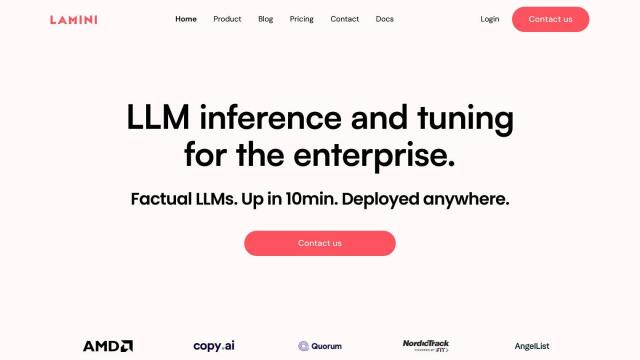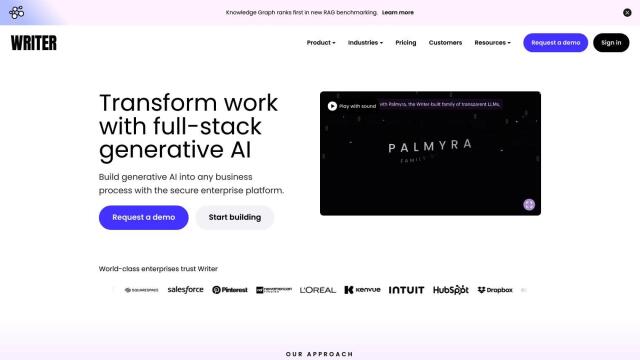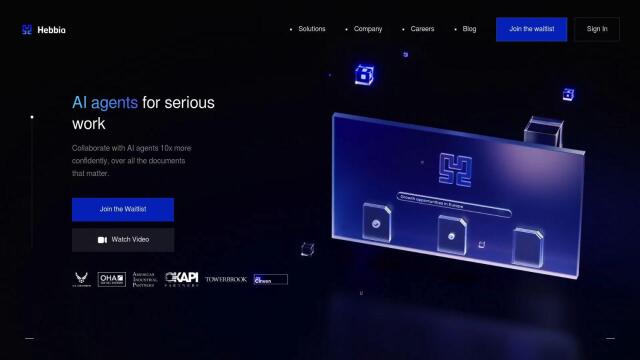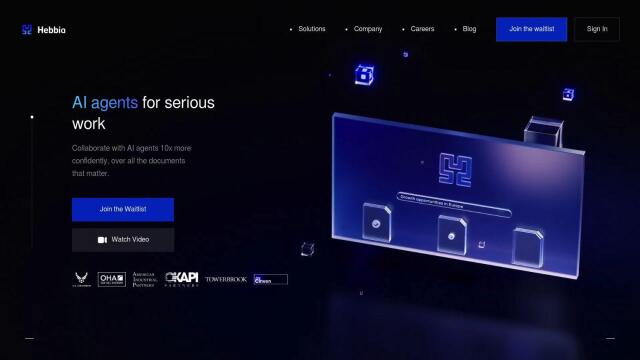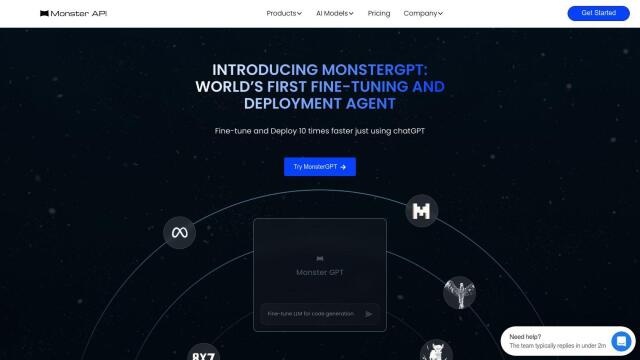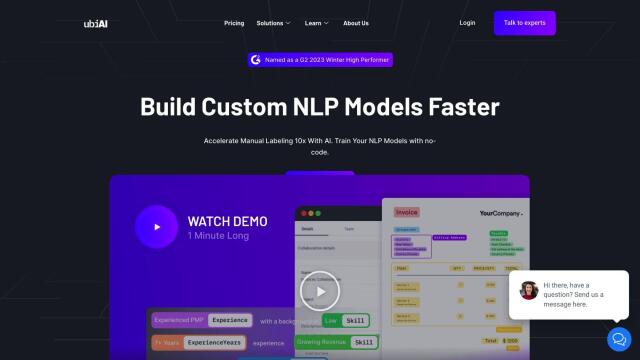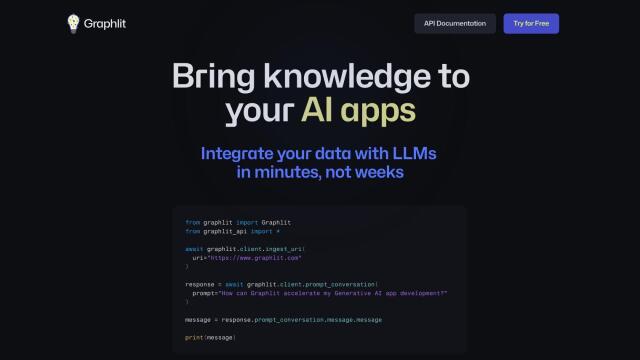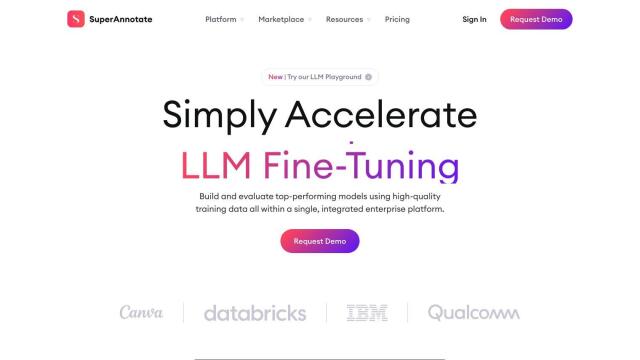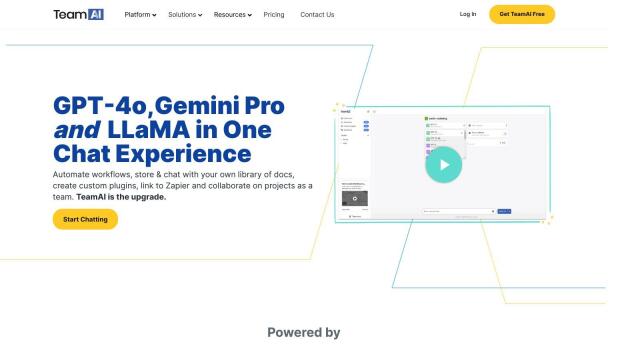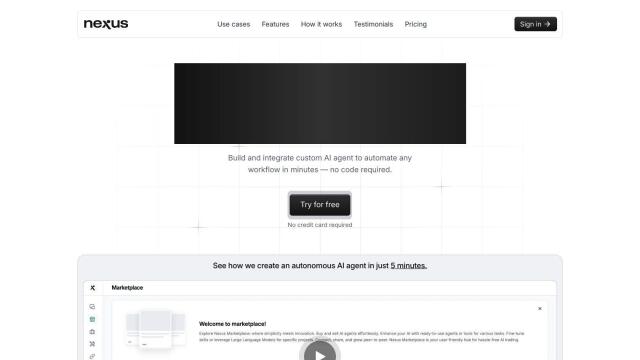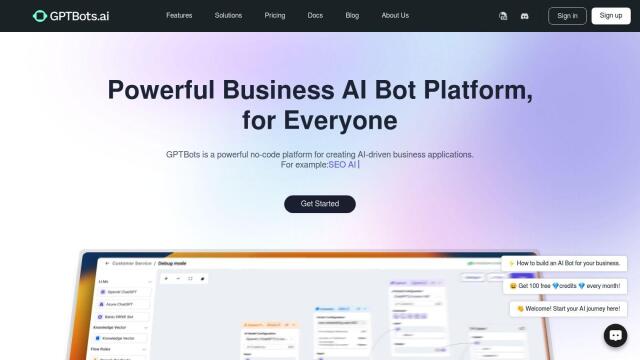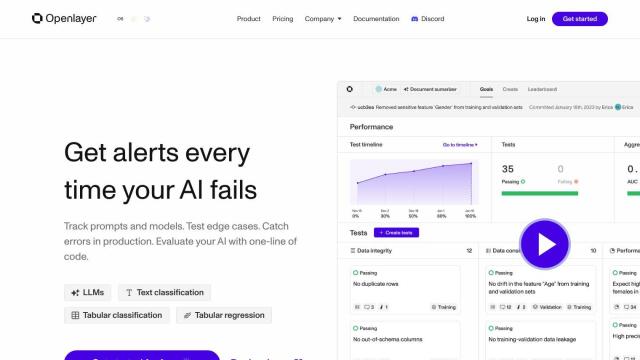Question: Can you suggest a tool that allows me to build custom NLP models for tasks like ontology enrichment and text-to-graph applications?
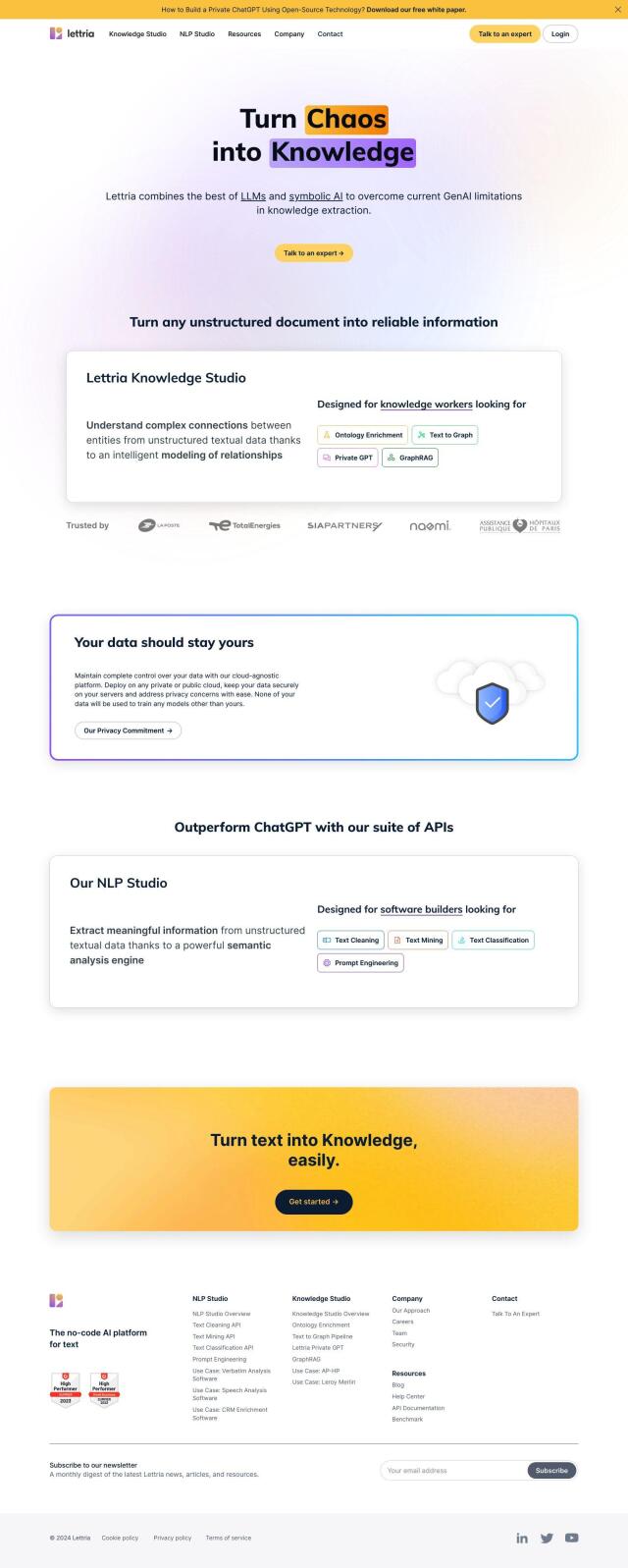
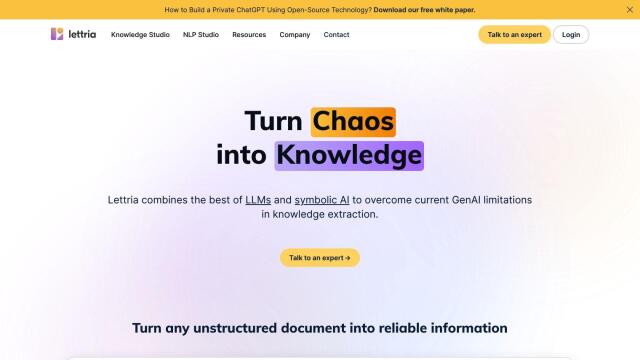
Lettria
For building your own NLP models for things like ontology enrichment and text-to-graph processing, Lettria is a good option. It's a no-code AI platform that marries Large Language Models (LLMs) with symbolic AI to get insights out of text data. The platform's Knowledge Studio lets you create your own NLP models for things like ontology enrichment and text-to-graph, and its NLP Studio has tools for text preprocessing, mining, classification and prompt engineering. Lettria has data security and privacy built in with options to deploy models on private and public clouds.

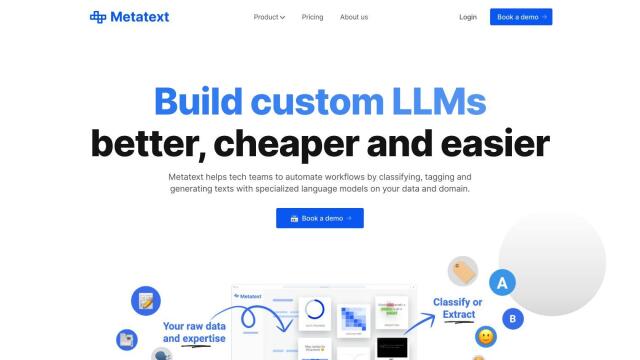
Metatext
Another good option is Metatext, an NLP model creation and management platform. It lets you create your own models without deep programming expertise, which is useful for things like customer support, customer insights, content moderation, healthcare, finance and human resources. Metatext supports multiple languages and has tools for creating your own datasets, fine-tuning models and integrating with other systems, so it's a good option for a variety of NLP tasks.

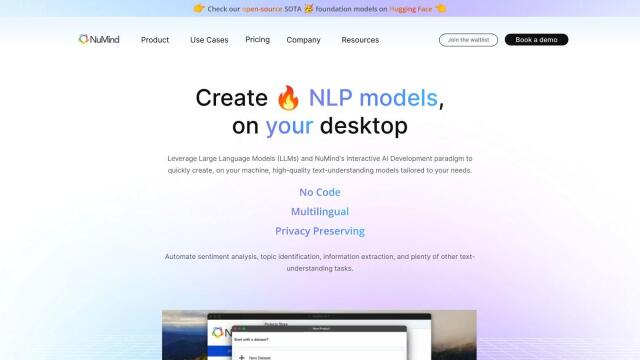
NuMind
NuMind also offers a flexible tool for creating text processing models without programming. It's good for a variety of tasks, including sentiment analysis, entity recognition, text classification and content moderation. With multilingual support and low costs for deployment, NuMind's models can run on CPUs with a footprint less than 1 GB, so it's a good option for a variety of NLP projects.


Abacus.AI
Last, you could look at Abacus.AI, which lets developers create and run applied AI agents and systems at large scale with generative AI and other neural network techniques. It's got features like ChatLLM for creating end-to-end RAG systems and AI Agents for automating complex workflows. Abacus.AI has high availability, governance and compliance features, so it's good for large-scale AI operations.

